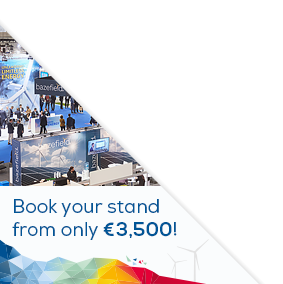Posters
Siblings:
ProceedingsProgrammeProceedingsSpeakersPostersContent PartnersElectrification StageMarkets TheatreR&I ActivitiesStudent DayProgramme Committee & abstracts reviewersPresenters dashboardCome meet the poster presenters to ask them questions and discuss their work
We would like to invite you to come and see the posters at our upcoming conference. The posters will showcase a diverse range of research topics and provide an opportunity for delegates to engage with the authors and learn more about their work. Whether you are a seasoned researcher or simply curious about the latest developments in your field, we believe that the posters will offer something of interest to everyone. So please, join us at the conference and take advantage of this opportunity to learn and engage with your peers in the academic community. We look forward to seeing you there!

PO073: Data-driven design optimization of mooring systems for floating offshore wind turbines
Esha Biniwale, Graduate Engineer, DTU
Abstract
In this paper, a data-driven framework is created to minimize the material cost of the mooring system, by optimizing the geometry of the mooring system, while also meeting the stability requirements of the floating structure. A surrogate based optimization routine is employed to minimize the length of the mooring lines, in turn reducing material costs, attached to the UMaine semi-submersible floating platform system supporting the IEA 15 MW wind turbine. The optimized results are then validated by performing a fully coupled time-domain simulation in HAWC2. The high-fidelity simulations performed in HAWC2 are accurate but have a high computation cost, which makes it difficult to use in design optimization where a large number of simulations are to be performed. This paper replaces this high-fidelity simulation with a surrogate model to decrease the computation cost, thus aiding in design optimization. Here, the surrogate model used is neural networks (NNs). Artificial Neural Networks (ANNs), have been used in a variety of applications, especially in the domain of wind engineering, and rightfully so. NNs have the capability to map any kind of input to an output by adjusting the weights iteratively. This is particularly useful in FOWTs, where there is non-linearity in the structure. In the context of this paper, NNs have effectively reduced the computation cost of the optimization.







